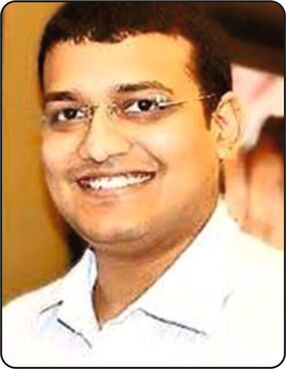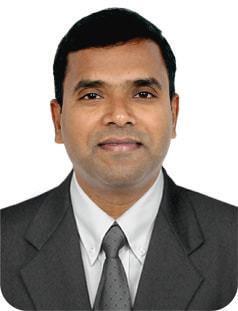|
Naga Siddharth is an HR leader, Coach and Author. In his career, He has helped scale, build and accelerate organizations in the domains of aviation, information technology (services, product, cloud, support), healthcare, startups, retail and real estate. Naga Siddharth is a credentialled Executive Coach (PCC, MGSCC), a member of the International Association of Facilitators and an author of psychometric tools. He has used design thinking for HR initiatives helping drive measurable business outcomes such as sales. An author and researcher, four of his books are sold on Amazon. He has published books based on action research in areas of flow, roles, stress, organization citizenship behaviours. In 2017, he was recognized as under 40 HR leader. “Stop trying to Cure. Try caring instead.” 1. What has your HR journey been like and what influenced you the most to have a positive impact on your career? My HR journey was one of choice. I did my engineering and then did a dual specialization in Marketing and HR. I won a gold medal for marketing. My learnings in marketing helped me understand the deeper aspirations and create solutions. My career has offered me an opportunity to work across industries, at the depth that being a HR consultant wouldn't have given me. Helping businesses succeed through people and facilitating the context to make that happen is something I have done in my career. My book on HR Design and Analytics was foreworded by Dr. Marshall Goldsmith who called it “revolutionary and ground breaking” and that such work happens once in a “long time, a very long time”. My mentors helped me a lot in the early stages of my career. Have tried to pay it forward in my little way. 2. You worked with Dr. Uday Pareek. Would you share more information about your association with Dr. Pareek.? Dr. Udai Pareek gave me an opportunity to co-author a CD with him on psychometrics. After he passed away, I saw the book in a bookstore. When I opened it, I saw that he had acknowledged my contribution in a full paragraph. Those are the values I resonate with. 3. What kind of challenges did you face early days of your career? What are current challenges? Challenges are often self-created in the HR function. My simple approach is to keep it simple, talk to people connected with the challenge and sort it out. Sometimes businesses have aspirations beyond their preparation. Having a real problem helps make real progress. Early in my career, email was just coming in. Internet penetration was not as much as we have today. Hence, access to information and learning was a challenge compared to today. Today, attention spans have reduced. Instant gratification is the norm in many areas. Organizations that practice authentic humanness are less in number in the new economy. 4. How do you see workplace culture evolving over the years? Culture evolves with society. It's actually worthwhile to talk about work life balance these days. Companies are looking at having four day work weeks. Virtual work and individual career journeys were predicted by me in 2010 and 2013 and was awarded by SHRM for that. It took 10 years and an unfortunate pandemic to nudge businesses to take the leap of faith. It is a paradox, because entrepreneurship - the foundation of business - creates businesses that are risk averse. The ubiquitous availability of mobiles has made the information differential vanish. The differential now is about ideas, networks and execution. 5. What fundamental change, in terms of culture, have you brought into your company? In one of the places I worked, we had to turn a very placid place into one raring for sales. It's possible with a configuration of areas - right from values, structure, systems, behaviours, rewards, development and so on. We achieved that and the first time that business achieved a bubbling sales culture and also revenue targets for two consecutive years. It's never one solution. Has to address fundamentals of that business. Learnt that they have recently been ranked in the top 50 companies in their category for people practices. That's something heartwarming. 6. Would you share top three learnings/insights from the challenges you faced? Where do you draw inspiration from? I draw learnings from wherever I can. But the final inspiration comes from my own wisdom and values that need to be aligned to what I do. 1. When you are innovative, people around you don't understand you. It's ok. 2. Authentic relationships are any day better than others. 3. Human potential when unlocked can create magic. Not all companies want it though. 7. Where do you draw the line when it comes to work-life balance? I need to feel that I am doing justice to both. Autonomy to manage time needs to be there for me. It's not a metric, but a human feeling. The more I enjoy my work, the lesser I find the need to intentionally balance work and life. 8. You have worked for startup companies and have been successful in establishing HR process and systems. What are key challenges and opportunities for HR professionals in startup companies? HR has two extreme contexts in startups. Since founders are often inexperienced around working established companies, they sometimes do not know how to leverage HR. The other extreme is where Founders are grounded and when HR is seen as a business function and maximized for company prosperity. This is one major aspect. Not all startups have the will to unlock people, since they haven't seen it happen before. They tend to use brute force, or try to intellectually put more and more effort, on an affective constituency of people. Also, HR practices differ a lot in companies that are focused on scaling and exit v/s those that are in for creating value and enduring businesses. Before joining any startup, see if you can identify with and love the business you are joining. If that is so, practicing impactful HR isn't difficult. 9. What are some major changes you see affecting HR within the next few years? Virtualization will mean employees will soon work in 3D animated universes. Someone from Iceland might be operating a bot in Coimbatore, somebody sitting in Tumkur might be driving a cab in NCR. The nature of the collective of working together will throw challenges in terms of connect and communication. HR will need to be amped up in terms of presence and sense, empathize and bring in a lot of common sense to make the experience worthwhile for employees. It's a lot of unlimited opportunity. 10. What's your success mantra? “Stop trying to Cure. Try caring instead.” I learnt this from a Buddhist monk Ven. AjahnBrahm. He was telling us a story on how a young doctor was so dejected after he lost a patient. The doctor was all bothered about curing the patient while what he was supposed to do was to care for his patients. Often, an achievement led culture is mistaken as being all about fixing things, in particular fixing people around you. As professionals, can we take a breath and start caring?
0 Comments
Leave a Reply. |
ArchivesCategories
All
|
||||||
SITE MAP
SiteTRAININGJOB |
HR SERVICESOTHER SERVICESnIRATHANKA CITIZENS CONNECT |
NIRATHANKAPOSHOUR OTHER WEBSITESSubscribe |
MHR LEARNING ACADEMY
50,000 HR AND SOCIAL WORK PROFESSIONALS ARE CONNECTED THROUGH OUR NIRATHANKA HR GROUPS.
YOU CAN ALSO JOIN AND PARTICIPATE IN OUR GROUP DISCUSSIONS.
YOU CAN ALSO JOIN AND PARTICIPATE IN OUR GROUP DISCUSSIONS.
|
|



 RSS Feed
RSS Feed





